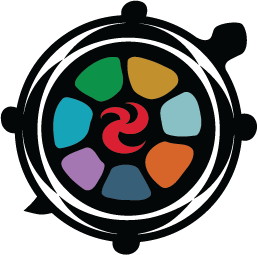About the NIFSC
for us, by us
The National Indigenous Fire Safety Council (NIFSC) is committed to ensuring that Indigenous communities have equitable access to fire safety services, training, and infrastructure, leading to the elimination of fire and mitigatable incidents, improved emergency response, and strengthened community resilience.
What is the mission of the NIFSC?
The NIFSC is dedicated to eliminating the loss of life and property from all fire-related and mitigatable threats in Indigenous communities.
Our work is guided by five core values:
Respect for Indigenous Knowledge & Culture
Community Empowerment
Collaboration & Partnerships
Accountability & Transparency
Commitment to UNDRIP & Truth and Reconciliation
The NIFSC was created by the Aboriginal Firefighters Association of Canada (AFAC)
The AFAC Board of Directors was committed to the inclusion of all Indigenous Peoples, which was central to the development of the National Indigenous Fire Safety Council (NIFSC). On April 1, 2022, the inaugural NIFSC Board of Directors was established in place of AFAC.
The governance goal of the NIFSC shall be governed by an Indigenous-led council, with representation from First Nations, Métis, and Inuit communities, ensuring that decision-making reflects the needs and priorities of Indigenous peoples across Canada.
The NIFSC is guided by the following goals:
Develop and implement national fire safety standards tailored to Indigenous communities.
Provide culturally relevant fire prevention and emergency response training.
Advocate for sustainable funding and policy changes to improve Indigenous fire services.
Conduct research and data collection to support evidence-based decision-making in fire safety.
Support Indigenous communities in disaster preparedness and emergency management.
A resolution passed by the Assembly of First Nations
The Assembly of First Nations (AFN) passed a resolution in support of the Aboriginal Firefighters Association (AFAC) in December 2017. At that time, the Special Chiefs in Assembly directed the AFN to support AFAC in its creation and implementation of what is now known as the National Indigenous Fire Safety Council (NIFSC). The Special Chiefs Assembly resolved that AFAC and NIFSC be collaborative with First Nation leadership to ensure that the council incorporates the needs of the communities it serves.
This Resolution signifies that AFAC and the NIFSC are living their values, taking a for us, by us approach to problem-solving. Together, the AFN and the NIFSC are working collaboratively, ensuring that the distinct voices of each organization and the communities they represent are heard and valued as we work together to improve fire and life safety issues in Indigenous communities.
This collaboration between the NIFSC and the AFN signifies our prioritization of the role that national Indigenous organizations, like the AFN, will have in guiding the direction of the NIFSC. Ultimately, Indigenous communities and leadership, not the Project itself, will define what success means for the NIFSC.
NIFSC Annual Reports
How Does the NIFSC Work?
The NIFSC is responsive, meaning as a community’s capacity increases, the programs offered will become more sophisticated.
In 2019/20, the main effort of the NIFSC was to receive input from Indigenous communities. What we heard is that change is wanted, change is needed. The NIFSC team is working to bring about that change in collaboration with communities and existing organizations. The NIFSC team continues to reach out to constituents to seek feedback on programs as they are developed.
